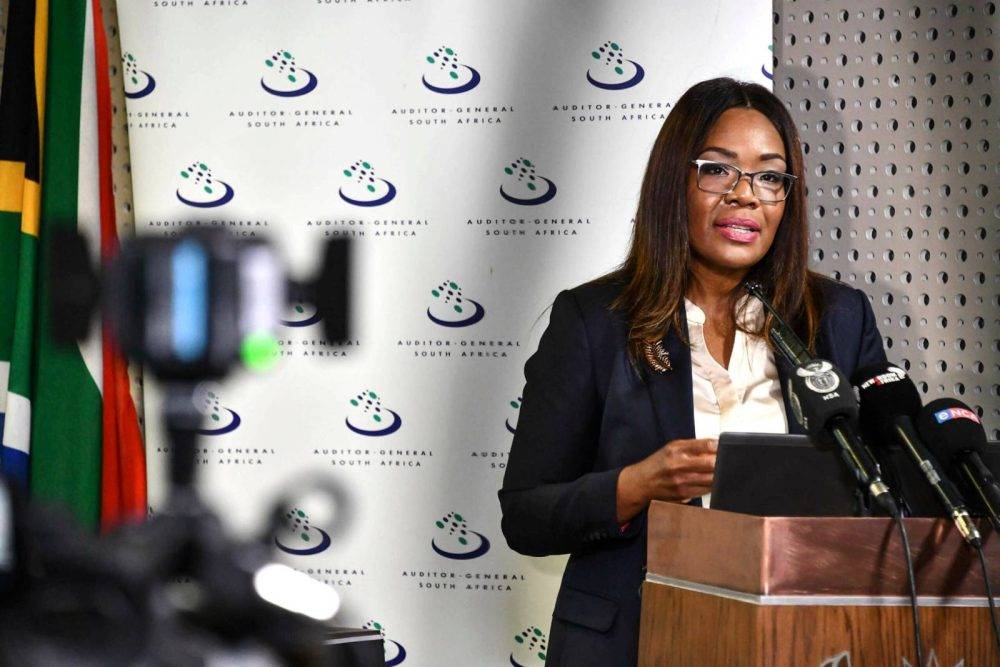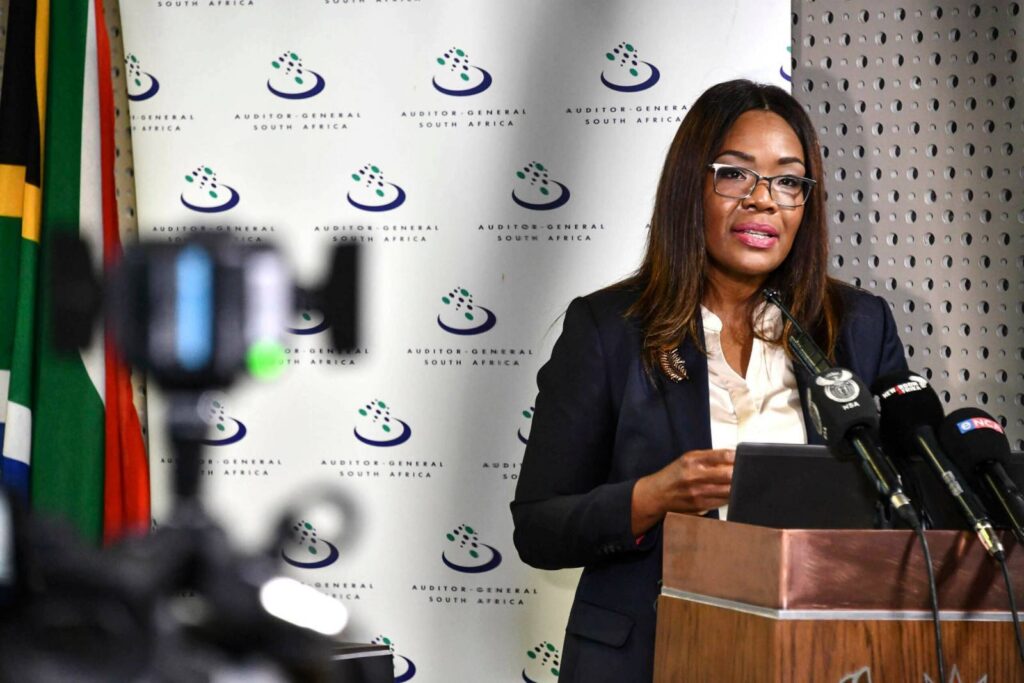
Auditor-General Tsakani Maluleke
PAudit results in local governments continue to deteriorate, with only 34 of South Africa's 257 municipalities achieving sound results.
Auditor-General Tsakani Maluleke highlighted the damning findings on Tuesday when he presented to Parliament a comprehensive report on the local government audit results for the 2022-23 financial year.
In his report, Maluleke called on “all role players in the accountability ecosystem to work with intentionality and urgency towards a culture of performance, accountability, transparency and institutional integrity that will ultimately lead to better lives for South Africans.”
The auditor-general said that despite promises from stakeholders, the pace of improvements has been “slow and has had little impact on the lives of ordinary South Africans”.
The trend of poor audit results continues, with 36 municipalities seeing a deterioration since the 2020-21 audit cycle, and only 45 municipalities seeing improvement.
Maluleke said many municipalities are caught in a vicious cycle of having their financial statements given an unqualified audit opinion despite findings on performance reporting and compliance with key legislation. He expressed concern that 77 municipalities remained in this category since the end of the previous administration's term and that there has been little effort to progress towards unqualified audit status.
While some cities have maintained good performance in audits for several years, demonstrating sound financial and performance management practices, the overall situation remains challenging, she said. Compliance remains a major issue, with 86% of cities receiving significant non-compliance notices, a slight worsening from the previous year.
Maluleke said 45 per cent of municipalities were not complying with the law on strategic planning and performance management.
“Furthermore, 48% of city performance reports contain unreliable or useless information, complicating efforts to evaluate city performance and address service delivery shortfalls.”
Maluleke called on the national and provincial governments to step up support for local governments, stressing the need for sustained efforts to improve the financial position and service delivery of local governments.
“Local governments' lack of ability to comply with the law remains a major obstacle, with 86% of councils receiving significant non-compliance notices. This is a slight decline on previous years, when 85% were cited for non-compliance last year and 83% in 2020-21,” she said.
Frequent delays, cost overruns and poor quality workmanship were cited as common problems, new infrastructure was often not put to use immediately, and existing infrastructure continued to deteriorate due to inadequate maintenance.
Maluleke said poor financial management remained widespread, with municipalities losing revenue through improper billing and collection practices and neglected infrastructure resulting in water and electricity cuts. Poor financial management has a direct impact on service delivery, with creditors such as Eskom and the Water Board being overdue, threatening households' access to basic services and hindering business operations.
On a positive note, Maluleke said 18 municipalities, mainly in KwaZulu-Natal, Mpumalanga and the North West, had moved out of the negative category under the current administration.
“Fourteen municipalities received complaints in 2022-23, but two of those audits were completed after March 31, 2024, the cut-off date for this report,” she said, adding that support from the state government had led to signs of improvement.
Municipalities that receive clean audits, especially those that have maintained this status for several years, generally demonstrate sound financial and performance management practices.
“These municipalities have well-functioning governance environments that effectively manage projects while adhering to schedules, budgets and quality standards, supporting improved performance and service delivery,” Maluleke said.
“The rate of submission of financial statements by the statutory deadline has improved, with 94% of councils meeting the deadline in 2022-23, up from 91% in 2021-22 and 81% in 2020-21.”
Malulele said the main reason for the delay in completing the 2022-23 audits of the 10 municipalities was late or non-submission of financial statements, although the audits of seven of them have since been completed.

